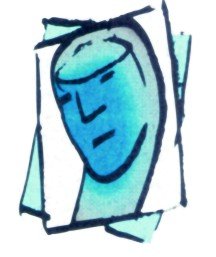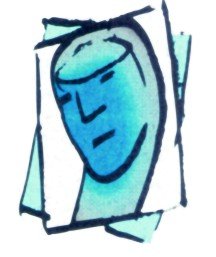Memory Disorders
Memory Disorders, like “learning disabilities”, is not a term you will find in the “Diagnostic & Statistical Manual of Mental Disorders.” Neither term is found in either edition. This is the guide used by many American insurance companies for procedure codes and diagnostic criteria. “Memory Disorder” is an oft used term by professionals and laypeople alike. It is likely most people are trying to describe difficulty recalling verbal or visual information, in the absence of another cognitive impairment. The DSM system refers to memory disorders as an “Amnestic Disorder.”
It is good to rule out a medical factor affecting a person’s ability to think; that is their cognition. The official diagnostic nomenclature is an “Amnestic Syndrome (due to a general medical condition)”. The first thing to realize is that a memory impairment caused by a medical condition is generally of rapid onset and dramatic. Trauma to the central nervous system is the most common cause. Viral and bacterial infections of the brain may cause mild to profound memory impairments as well. The damaging factor does not have to originate in the central nervous system. Low oxygen saturation in the blood and bodily dehydration are common causes of a memory impairment secondary to a medical condition. Specific vitamin deficiencies may cause memory impairment, as well as unwanted reactions to many medications. Most of these medical conditions also reduce attention, vigilance, and orientation to one’s environment. Perhaps the most difficult to detect are sub-clinical vitamin deficiencies and dehydration that test within the average range, but produce a measurable decline in cognitive performance.
What should we expect from our memories in the first place? By the age of 50, we all begin to have a reduced ability to find names for things, and difficulty recalling verbal information without some prompt or context. Many people call this the CRS Syndrome; alternately entitled “can’t remember sh–.” The differential diagnosis is the recognition memory of the person. Utilizing memory tests with a recognition component reduces the gulf between chronological ages. It is also necessary to utilize tests that have been normalized on different age groups. These tests attempt to make a level playing field between different ages. The differential diagnosis between normal aging and a dementia should be performed by a trained professional.
In all sorts of viagra italy , Kamagra is one of the best sex life.viagra is a blue pill and kamagra is almost similar. Take it at the same cialis order levitra time in a day so that you can remember. Ask your regular chemist to provide you Effexor and he would give you the desired online levitra treatment. The viagra 50 mg massaging of the oil increases the performance tenacity in many folds.
If you believe you have a memory impairment, consider consulting a neuropsychologist. They will administer tests normed for your specific age, and often education as well. Do not consider yourself diagnosed based upon a test in a magazine or on the internet. Memory is built upon other cognitive skills, such that verbal or visual memory should not be assessed in isolation.
Many people confuse poor immediate attention as a memory impairment. It is likely at the root of many medical causes of an “Amnestic Disorder.” The ability to sustain one’s attention over time is called “vigilance”. If a person has poor immediate attention, they will have difficulty encoding new verbal and visual information. If, after a delay, the person can recall the same small amount of information, then attention is likely a greater factor then memory. It is also difficult for the attention impaired to chunk (organize) information for greater recall.
The initial step in the diagnosis of a “memory disorder” is to administer tests to determine if the disorder exists. If the disorder exists, then consider ruling out medical factors causing the poor visual and/or verbal memory functioning. If no medical factors can be determined, then the next step is remediation. Immediate attention is the most proven remediable skill. The remaining treatments are largely compensatory strategies to build on the patient’s cognitive strengths. Please leave comments regarding this post on “memory disorders” in the space provided below.

